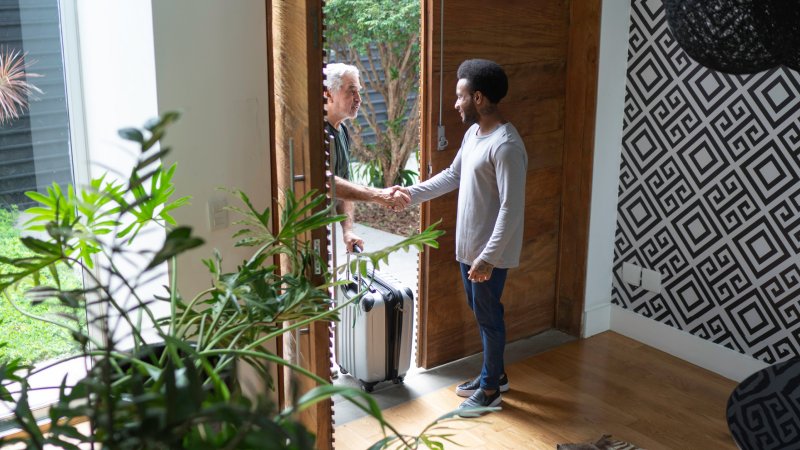Home sharing and home insurance

Home sharing has become increasingly popular over the years as a way for property owners to make extra money by opening their homes and as a way for travelers to find a cozy, sometimes more affordable and unique, alternative to hotels.
If you’re a home-sharing host, it’s crucial to understand how your insurance coverages do and do not apply to this risk. Don’t assume your homeowners’ standard property and liability coverages will apply while you’re renting out your home.
What is home sharing?
Home sharing is a term given to the short-term rental of your property to someone in exchange for money. This can be your entire property or just a room of the home you live in. Some popular home sharing platforms are Airbnb and VRBO.
Does homeowners insurance cover short-term rentals?
Most likely, no. Your home is not licensed the same way a bed and breakfast or motel is. When you’re operating short-term rentals out of your home, your risk is different, and your insurance needs are different. Your guest may cause damages to your property, and you may be liable for any injuries a guest may incur while staying at your place. While these are the types of incidents your homeowners policy may cover, that coverage likely doesn’t extend to incidents where a paying guest is involved.
But have no fear. There are coverages you can add to your policy to help protect your financial investment and your liability. If you’re asking yourself, “Do I need insurance for my Airbnb property?” then read on to learn more.
What insurance do you need for Airbnb?
Because regular home sharing is considered as operating a business, you may be wondering if you need a business insurance policy or a landlord policy in addition to your homeowners insurance. Because everyone’s situation is different, it is best to talk with your insurance agent about what coverages you need for your risk. But some insurance providers offer an optional endorsement for home sharing that can be added to your standard homeowners policy.
If you’re doing short-term rentals in a property that is not your primary home, a landlord policy may be a great option. Plan to discuss your risk with your agent so you’re properly covered.
Differences between homeowners policy and landlord policy
The biggest difference between a homeowners policy and a landlord policy is that a homeowners policy is for protection of an owner-occupied property; and a landlord policy is for protection of the owner’s financial interest in a tenant-occupied property.
Bottom line: You will need extra coverage if you’re engaging in home-sharing activities in your property. Whether you need a home-sharing endorsement added to your homeowners policy or a landlord policy will depend on your personal situation and risk. Call your local Alfa® agent to answer your property insurance questions and get a free quote on your property today!